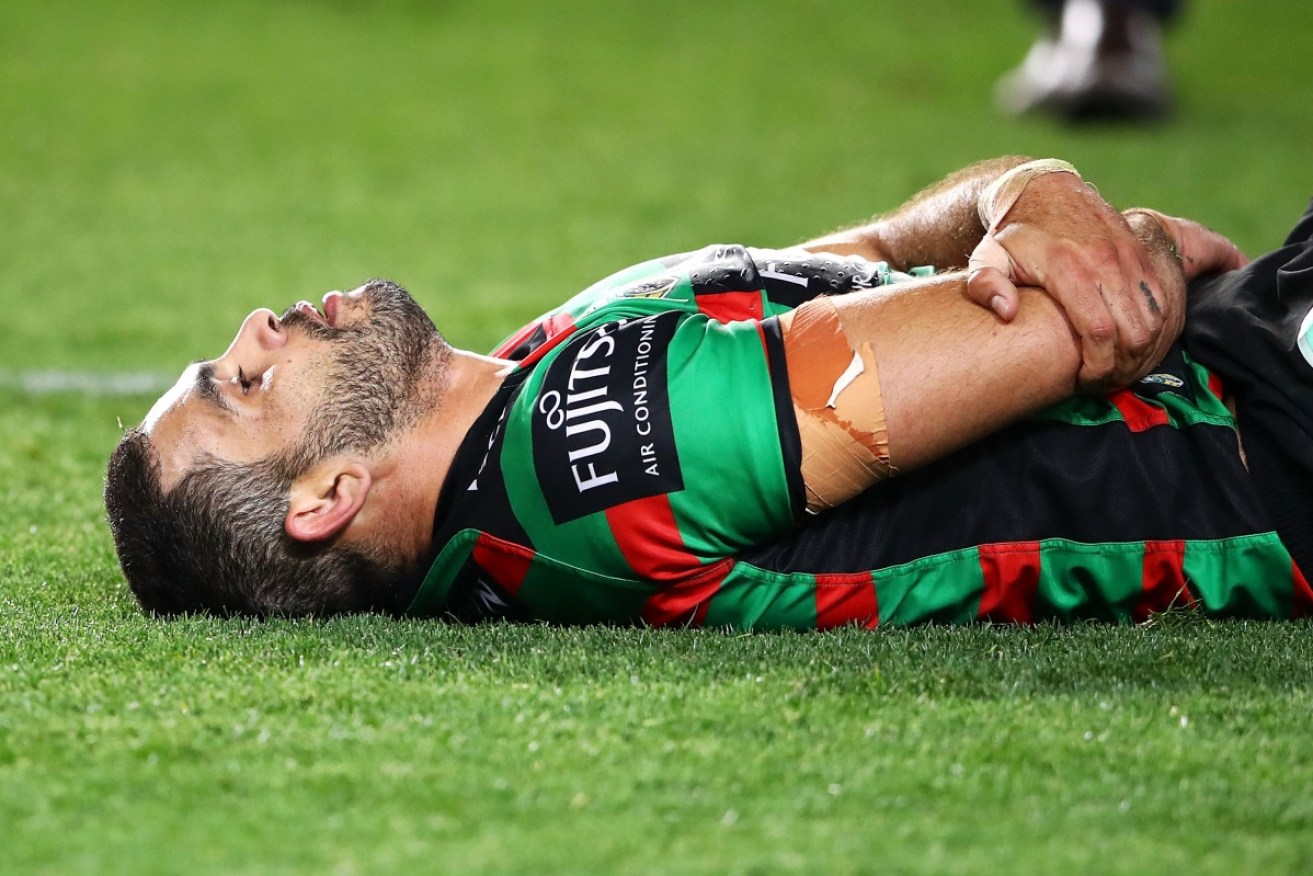Beyond the boundary: How sport is getting better mental-illness outcomes

Greg Inglis has had highs and lows on his NRL journey. Photo: Getty
The news that recently retired NRL star Greg Inglis has entered a rehabilitation centre to undergo support for his mental health battle is the latest reminder that there can be a price to pay for reaching the top of elite sport.
The recognition and highs that come with sporting success can also be followed by lows when years of routine and camaraderie comes to an end – sometimes abruptly.
The Rabbitohs on Friday confirmed South Sydney’s 2014 premiership-winning captain had entered a facility to undergo treatment to assist and support his mental health.
Earlier this month, AFL 2016 Western Bulldogs Premiership hero Tom Boyd retired from football aged only 23 after several seasons of battling the expectation that came with his talent and pay packet.
Increasingly though, sporting clubs are being recognised for having the processes in place to identify and assist players and former players who may be struggling.
Beyond Blue says the use of group sessions within clubs to talk about insecurities and weaknesses are helping break down barriers and ensure honest and meaningful communication in pressure-packed environments.
The organisation that seeks to combat depression and anxiety says such programs can create a strong bond between the players, building a culture of empathy and respect.
Research fellow at the Australian Catholic University Brisbane Matthew Pink agrees sporting organisations have grown better at recognising their role in helping players adjust to life outside of sport.
Dr Pink, who has studied the impact on athlete welfare and issues around retirement and career development, says it is vital that elite athletes are encouraged to interests outside of a narrow sports focus.
“Where you can, develop a diverse range of interests because, unlike many professions, when you get to around 30, and sometimes earlier, a career change is sometimes forced upon you,” he told The New Daily.
“I think they have got – from the research I have done – quite a bit of support in place for players during their careers, in looking after their wellbeing and for preparing for life after sport.
“But, at the same time it is also important [to note] … that because they are notable stories we start to think that is it more prevalent than it is.
“The research suggests that only a small portion of athletes experience serious problems after retirement, but they also tend to be the athletes that stick out the most – the ones that we remember.”
In the case of 32-year-old Inglis, his injury-forced retirement came suddenly and while he took up an assistant coach and charity role with the Rabbitohs, he has reportedly found it hard without the weekly grind of training with teammates during an NRL season.
Souths coach Wayne Bennett, a strong supporter of Inglis’ decision to hang up the boots, acknowledged the club played a role in helping the former star.
“The best thing I say about Greg is that he’s getting the support that he needs,” Bennett said.
Inglis said back in 2017 that he was seeing a therapist four times a week to help in his battle with depression, particularly because he found that group sessions were not helping.
Earlier this year he had announced he’d retire at the end of 2020, but he was not to have much longer in the game
Dr Pink says the key issue for clubs is to ensure players have many facets to their life beyond sport.
“I guess what I have noticed in working with athletes and in my time completing research in this areas is that the biggest protective factor both during the career and, also importantly, after they retire is working on developing into someone who has diverse interests and several different facets to their lives,” Dr Pink said.
“So it’s not all just about the football or the cricket or whatever sport they are playing.
They are remaining holistically well because they have these different segments of their lives and they can get rest and recreation from being a professional athletes and at the same time they can get respite from each one of those various areas of their lives.”
In the case of Bulldog Tom Boyd, his coach Luke Beveridge recognised his player was struggling and that it had been important to help him with his choices to pursue opportunities outside football.
“I’m really proud of the way everyone has supported Tom and how Tom’s carried himself,” and emotional Beveridge told reporters earlier this month.
“We’ve done our best to protect him for the most part, and obviously he had an enormous impact in those couple of years where he was endeavouring to bring his absolute best at the highest level of this game.”
Tweet from @7AFL
Dr Pink says offering time for other pursuits beyond the cut and thrust is vital, and sporting organisations had heeded the lessons of the past.
“I think the field has developed a lot in recent years and particularly in Australia there is more of a holistic focus in player development and realise that there is a duty of care to assists these comparatively young men and women in developing in all facets of their lives, without it becoming forced fun,” he said.
“You can’t force someone to value something … but what you can do at that time is to have the programs in place and make the suggestions and I think that most people are receptive to these things particularly as retirement looms closer.
“I’ve definitely noticed a shift probably in the last decade to it being just more about developing athletes as athletes.
“One it is a duty of care, but two there is potentially a positive spin off that enables a specialty employee of your sports organisation [go] on to experience a greater post retirement life.”
For help or support: Lifeline 13 11 14; Beyondblue 1300 22 4636








